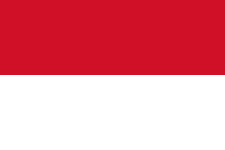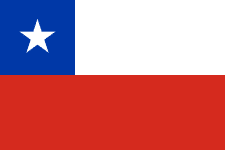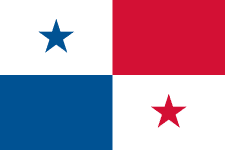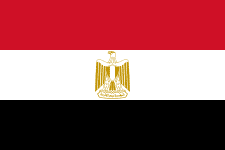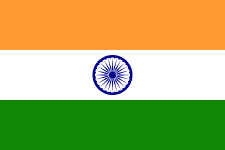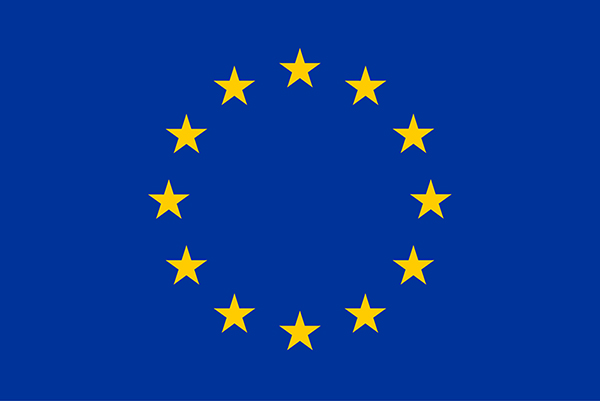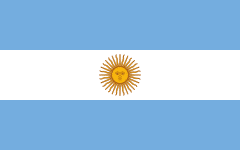- Industry
- Region
- Country / Region
On May 27, 2025, Indonesia's Ministry of Communications and Digital Affairs (KOMDIGI) officially launched the Mutual Recognition Arrangement (MRA) for telecommunications equipment testing laboratories with South Korea. Indonesia has accepted and approved two South Korean testing laboratories under this mutual recognition arrangement.
Click on this link to view the news report from the Directorate General of Digital Infrastructure (DJID) in Indonesia and the authorization of the relevant Korean laboratory.
Following the FCC's discussion and adoption of two bills on strengthening the equipment regulatory process and identifying the impact of foreign adversaries on the communications industry at its public meeting on May 22, 2025, the official content of the relevant bills was officially released on the FCC website on May 27, 2025, with the following main contents:
- FCC 25-27: The two-part decision of the announcement, with Appendix A to be issued in accordance with the final rule, will prohibit entities on multiple lists and entities controlled by foreign adversary countries as defined by the U.S. Department of Commerce (10% or more of the state-owned assets) from participating in the FCC equipment certification process as FCC testing laboratories, TCBs, and accreditation agencies; Appendix B is a solicitation of comments considering whether to further prohibit all entities in the territory of a foreign adversary country from participating in the FCC equipment certification process;
- FCC 25-28: Comment on the requirement for all entities authorized by the FCC to submit ownership information, the reporting threshold is likely to refer to the 5% threshold adopted in FCC 25-27.
Both announcements are not currently posted on the Federal Register website, and a comment period will be provided after they are posted. These two policies will have a greater impact on the domestic information and communication industry, and it is recommended that relevant enterprises and institutions pay close attention and actively give feedback during the consultation period to defend their own rights and interests.
Click on the links above to view FCC 25-27 and FCC 25-28 respectively.
On May 23, 2025, the Ministry of Communication and Digital Affairs (KOMDIGI) of Indonesia issued Decree No. 204 of 2025 on the technical standard for telecommunications equipment and/or broadband wireless access telecommunication equipment based on the IMT-2020 technical standard. The decree covers technical standards for terminals and base station equipment in the 5G n50 band (1432-1517 MHz, TDD).
Click on this link to view the original text of Legislative Decree No. 204 of 2025.
On May 22, 2025, the Vice-Minister of Transport and Telecommunications of Chile issued Resolution No. 737, which amends Resolution 1985 on technical standards for short-range telecommunications equipment.
The resolution introduced a new mandatory standard for the emission of radio equipment, requiring QR codes to be printed on packaging to verify its compliance. Importers and manufacturers must ensure compliance before products enter the market and provide test reports and technical details of frequency and power levels. The regulation is designed to effectively manage the radio spectrum while adapting to technological innovations to ensure equipment safety and regulatory compliance.
The regulation will come into force on February 22, 2026. Click on this link to view the original text.
On May 22, 2025, the Panamanian National Public Service Administration (ASEP) issued a resolution numbered AN 20510-Telco. This update amends the May 5, 2025, AN 20335-Telco resolution issued to strengthen regulatory oversight and align frequency allocations with current technological and market developments.
Click this link to view the original resolution.
On May 21, 2025, the National Telecommunications Regulatory Authority (NTRA) of Egypt notified authorized laboratories of the new mandatory requirements for Arabic language specifications, which read:
- The Arabic language instructions required for public-facing products (e.g., mobile phones, home routers, etc.) should include the name and contact information of the entity being translated, and must be an ISO 17100 accredited entity or an institution accredited by an Arab government organization.
- NTRA also announced that products that are ready to ship but do not meet the new requirements will be exempted from the requirement as the manufacturer was not previously aware of the requirement, but will require a letter of commitment from the manufacturer stating that it is aware of the new requirement and will meet it in future shipments.
On May 19, 2025, India's Ministry of Telecommunications (DoT) released the draft Rules for the Use of Low Power and Ultra-Low Power Radio Access Systems (including Wireless LANs) in the Low 6 GHz Band 2025. The rule applies to the band 5925-6425 MHz. The maximum equivalent isotropically radiated power (EIRP) is 1 W for low-power indoor (LPI) devices and 25 mW for ultra-low-power outdoor (VLP) devices.
Click this link to view the original draft and the comment period is until 15 June 2025.
On May 15, 2025, Indonesia's Directorate General for Digital Infrastructure (DJID, formerly SDPPI) released a public consultation on its official website on the introduction of the 2600MHz band. The draft specifies that TDD technology will be used for the 2500-2690MHz frequency band, that is, corresponding to Band 41 (2496-2690MHz).
Click on the link to view the original public consultation.
On 15 May 2025, the European Commission published Executive Decision (EU) 2025/893 amending the Executive Decision (EU) 2022/2191. This revision updates a series of harmonized standards, including a number of important EMC standards and important standards such as 5G terminal RF and Wi-Fi 6e RF, with the following changes:
- Expiration dates are set for the criteria in the table below:
Standard Latest Version In OJ Current Version In OJ Current Version Valid Date EN 301 489-52 V1.3.1 V1.2.1 2026-11-15 EN 301 908-13 V13.3.1 V13.2.1 2026-11-15 EN 301 908-3 V15.1.1 V13.1.1 2026-11-15 EN 302 064 V2.2.1 V1.1.1 2026-11-15 EN 303 098 / V2.2.1 2026-11-15 EN 303 213-5-1 V2.1.1 V1.1.1 2026-11-15 EN 301 893 V2.2.1 V2.1.1 2028-05-15 - Remarks change: The remarks of EN 301 489-12 V3.2.1, EN 301 489-20 V2.2.1, EN 301 489-52 V1.2.1 have been changed to indicate that the relevant standards do not apply to harassment below 9kHz;
- OJ has been added to several standards: EN 301 489-3 V2.3.2, EN 301 489-17 V3.3.1, EN 301 489-19 V2.2.1, EN 301 489-54 V1.1.1, EN 301 908-23 V15.1.1, EN 301 908-24 V15.1.1, EN 301 908-25 V15.1.1, EN 301 406-2 V3.1.1, EN 303 363-2 V1.1.1、EN 303 661 V1.1.1、EN 303 687 V1.1.1、EN 303 753 V1.1.1、EN 304 220-1 V1.2.1、 EN 304 220-2 V1.2.1;
Click on this link to view the original text of Decision (EU) 2025/893.
On April 30, 2025, the Argentine National Communications Authority (ENACOM) redefined the mobile satellite spectrum through Resolution No. 640/2025 to reduce interference to personal communication services (PCS). This change directly affects telecommunications and satellite operators operating within the Argentine national network. The redefined spectrum is:
- 1990-2025 MHz for ground-to-space transmission;
- 2170-2200 MHz is used for air-to-ground transmission.
Click this link to view the original ENACOM resolution.
